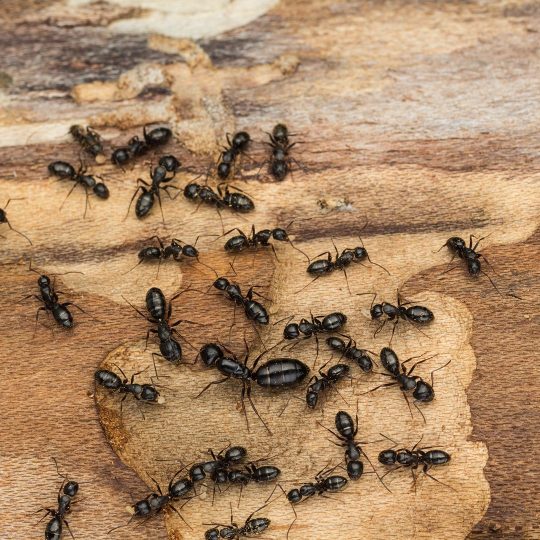Reliable Ant Control: Specialist Services to Eliminate Ant Infestations
Reliable Ant Control: Specialist Services to Eliminate Ant Infestations
Blog Article
Environmental Impact of Insect Control: Harmonizing Efficiency With Sustainability
The environmental impact of parasite control is an essential problem that needs a delicate balance in between attaining performance in taking care of parasites and ensuring sustainability of our communities. As we aim to secure our plants, homes, and health and wellness from the threats postured by parasites, the techniques we employ can accidentally hurt the environment. From making use of hazardous chemicals that permeate into our dirt and water to the unexpected consequences on non-target types, the consequences of traditional parasite control methods are significant. There are emerging approaches that use hope for a more lasting approach to pest administration. These remedies not just goal to address the instant parasite issues yet likewise think about the lasting health and wellness of our earth.
Hazardous Chemicals in Pest Control
The utilization of hazardous chemicals in parasite control postures substantial environmental and health and wellness threats that necessitate mindful factor to consider and mitigation approaches. Chemicals, pesticides, and herbicides are typically made use of to eradicate insects, but their widespread application can cause unintentional repercussions. These chemicals can contaminate soil, water resources, and the air, influencing not only the targeted pests yet additionally valuable pests, wild animals, and humans.

To attend to these threats, incorporated parasite administration (IPM) strategies are being advertised as an extra sustainable choice. IPM involves a mix of techniques such as biological control, habitat adjustment, and the targeted use pesticides as a last option (ant control marvinnc nc). By embracing an alternative method to pest control, we can minimize the ecological and health effects associated with hazardous chemicals while properly taking care of pest populaces
Effect on Non-Target Species
Taking into consideration the unplanned consequences of pest control methods, the influence on non-target species is an important element that requires detailed examination. While bug control measures aim to target specific pests, various other organisms in the community might be inadvertently impacted. Non-target types, consisting of useful insects, birds, creatures, and even plants, can suffer indirect or direct harm from pesticide applications or organic control techniques.
Pesticides can have sub-lethal or lethal impacts on non-target species. Insecticides designed to battle a specific bug parasite may harm pollinators like or all-natural killers such as ladybugs. Furthermore, chemical deposits can gather in the atmosphere, affecting non-target organisms in time. In a similar way, biological control representatives, otherwise species-specific, can position dangers to unplanned targets, interrupting the ecological balance.
To reduce the effect on non-target varieties, incorporated parasite administration (IPM) approaches that highlight an all natural method to pest control are recommended. These techniques prioritize the usage of eco-friendly techniques, reducing harm to advantageous organisms while successfully handling pest populaces. Carrying out complete risk evaluations and checking the results of pest control efforts are important actions in securing non-target types and promoting total ecosystem wellness.
Dirt and Water Contamination
Unintentional ecological repercussions of parasite control techniques expand past affecting non-target varieties, Find Out More with significant ramifications for dirt and water contamination - ant control services. Pesticides, herbicides, and chemical plant foods utilized in bug control can seep right into the dirt and contaminate groundwater, posing a hazard to both marine and earthbound ecological communities.
Water contamination is another essential issue associated with parasite control techniques. To alleviate soil and water contamination from insect control tasks, integrated bug management techniques that prioritize sustainability and decrease chemical inputs are essential.
Air Air Pollution From Pesticide Usage
Exposure to air-borne pesticides throughout agricultural applications presents a significant issue for air contamination control actions. In addition, pesticide drift, where pesticides are carried by the wind to unintentional areas, can lead to the contamination of close-by ecological communities and water bodies.

Methods for Sustainable Insect Control
In the world of agricultural techniques, applying sustainable insect control strategies is critical for maintaining eco-friendly balance and safeguarding crop yields. Sustainable pest control highlights making use of eco-friendly methods to handle bug populaces properly while minimizing injury to non-target microorganisms and environments. Integrated Insect Management (IPM) is a widely adopted strategy that integrates biological, social, physical, and chemical control techniques to accomplish long-term pest management remedies.
One trick technique in sustainable insect control is promoting biodiversity within agroecosystems. By boosting all-natural adversaries of pests, such as parasitoids and killers, farmers can lower the demand for artificial chemicals. Plant rotation and diversification are likewise reliable methods to interrupt pest life process and create less desirable conditions for insects to thrive. In addition, utilizing pest-resistant crop ranges and using techniques like trap chopping can help in reducing pest pressure without depending greatly on chemical interventions. Ultimately, by integrating these lasting pest control strategies, farmers can attain a balance in between pest management effectiveness and ecological stewardship.
Conclusion
Finally, the environmental impact of bug control approaches have to be very carefully taken into consideration to stabilize efficiency with sustainability. Harmful chemicals made use of in bug control can cause dirt and water contamination, air contamination, and damage non-target species - ant control. It is crucial to carry out lasting bug control approaches to reduce these unfavorable impacts on the setting and advertise a healthier ecological community for future generations
By taking on an alternative approach to pest control, we can reduce the environmental and wellness influences linked with damaging chemicals while successfully taking care of pest populaces.

To alleviate the air contamination caused by chemical use, it is necessary to embrace incorporated bug monitoring methods that focus on the usage of non-chemical insect control approaches, such as crop rotation, natural predators, and immune crop ranges. Lasting bug control highlights the use of ecologically pleasant techniques to handle insect populaces effectively while minimizing injury to non-target microorganisms and ecological communities. Integrated Insect Monitoring (IPM) is an extensively embraced approach that integrates biological, cultural, physical, and chemical control approaches to attain long-term parasite management solutions.
Report this page